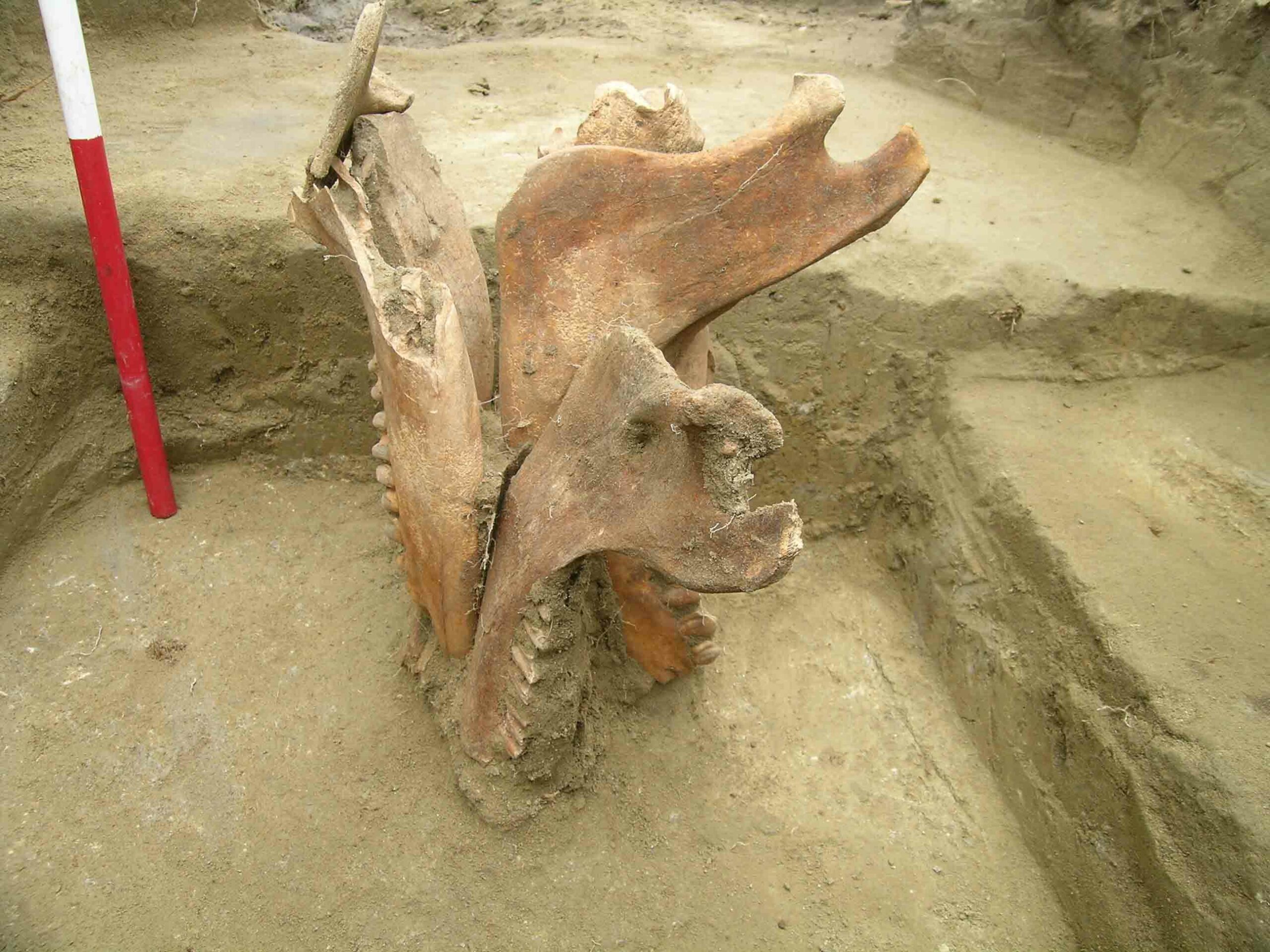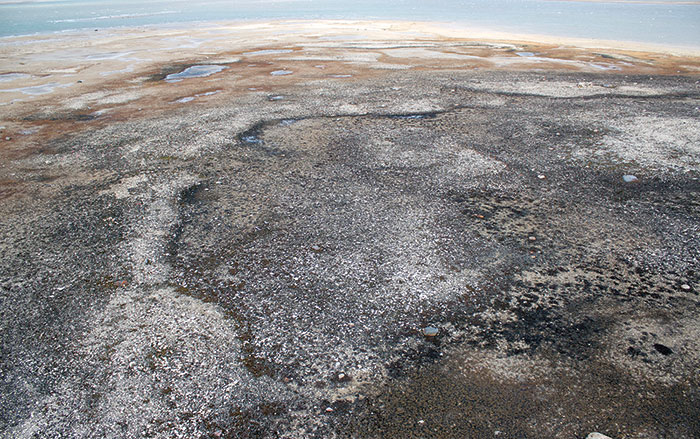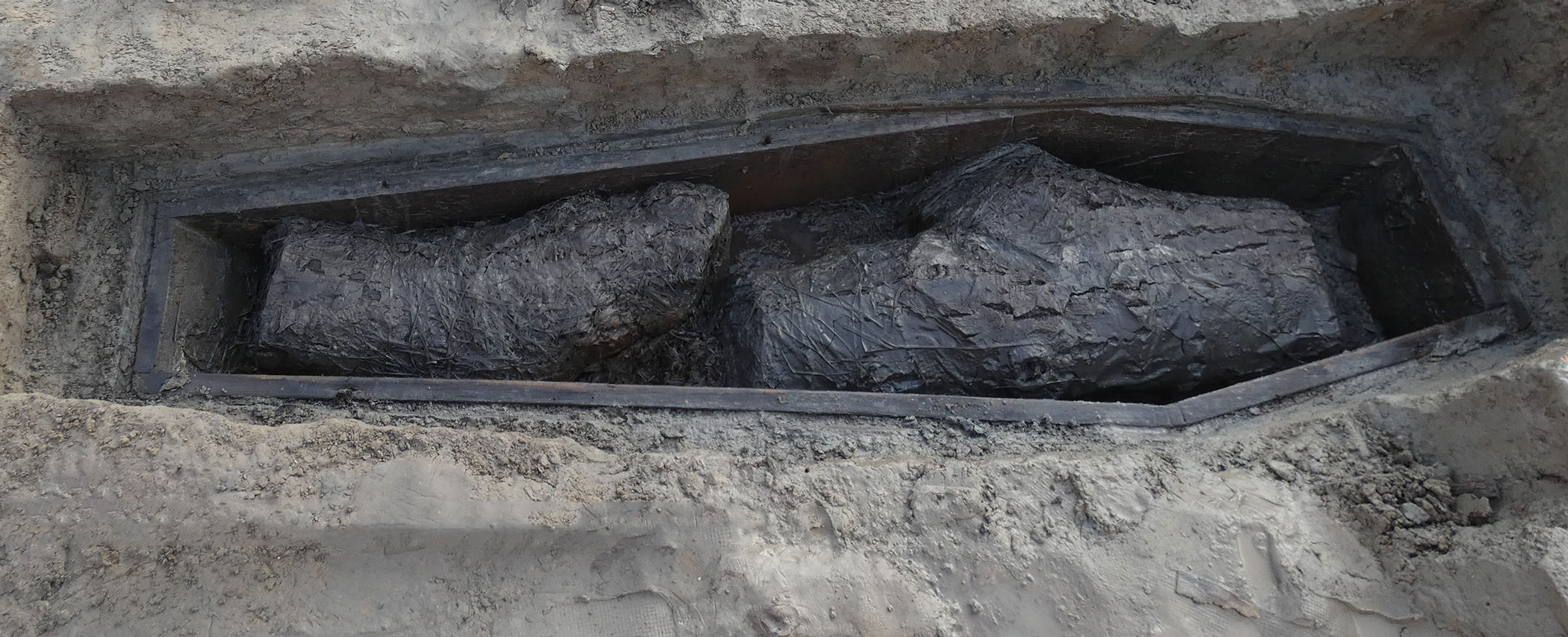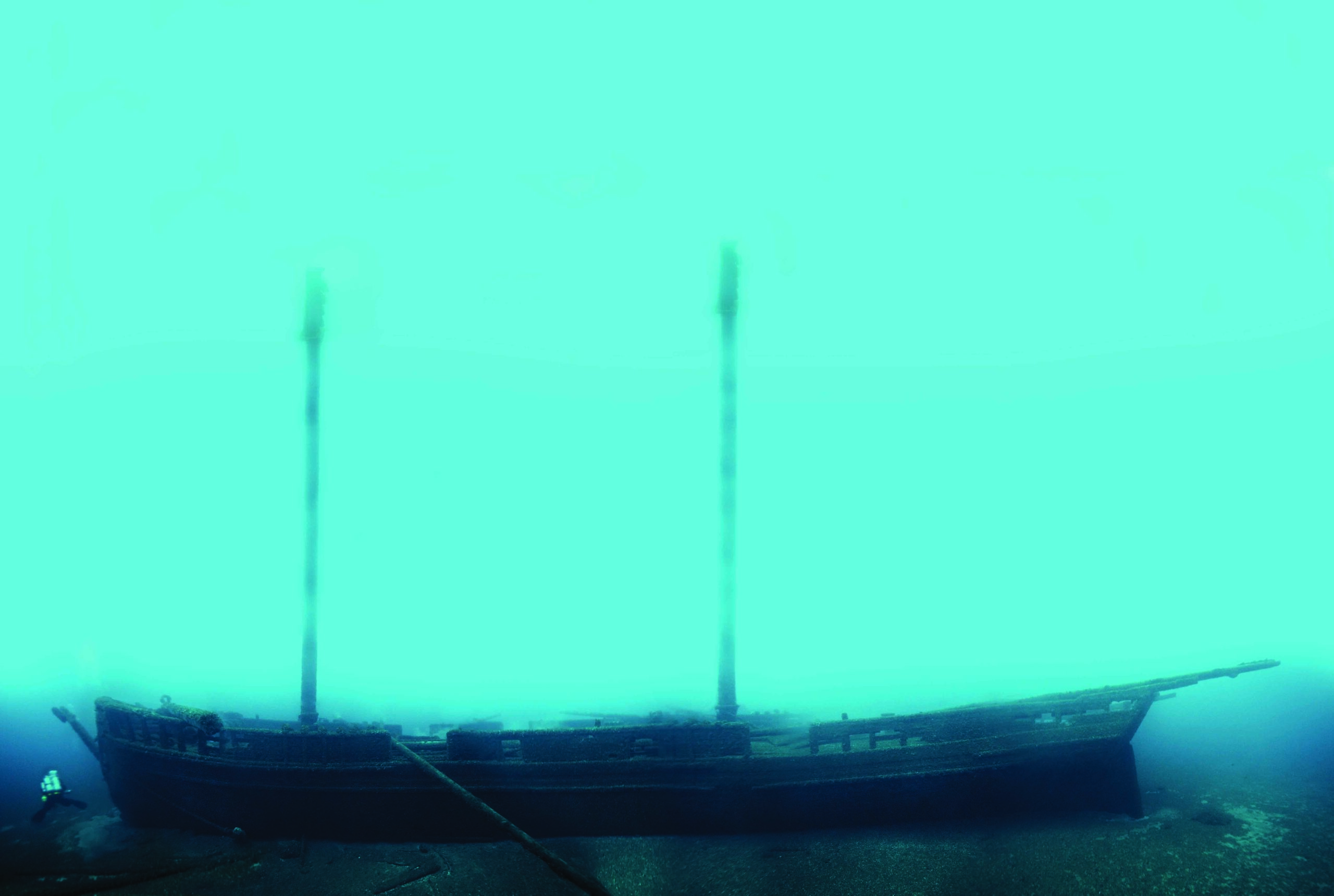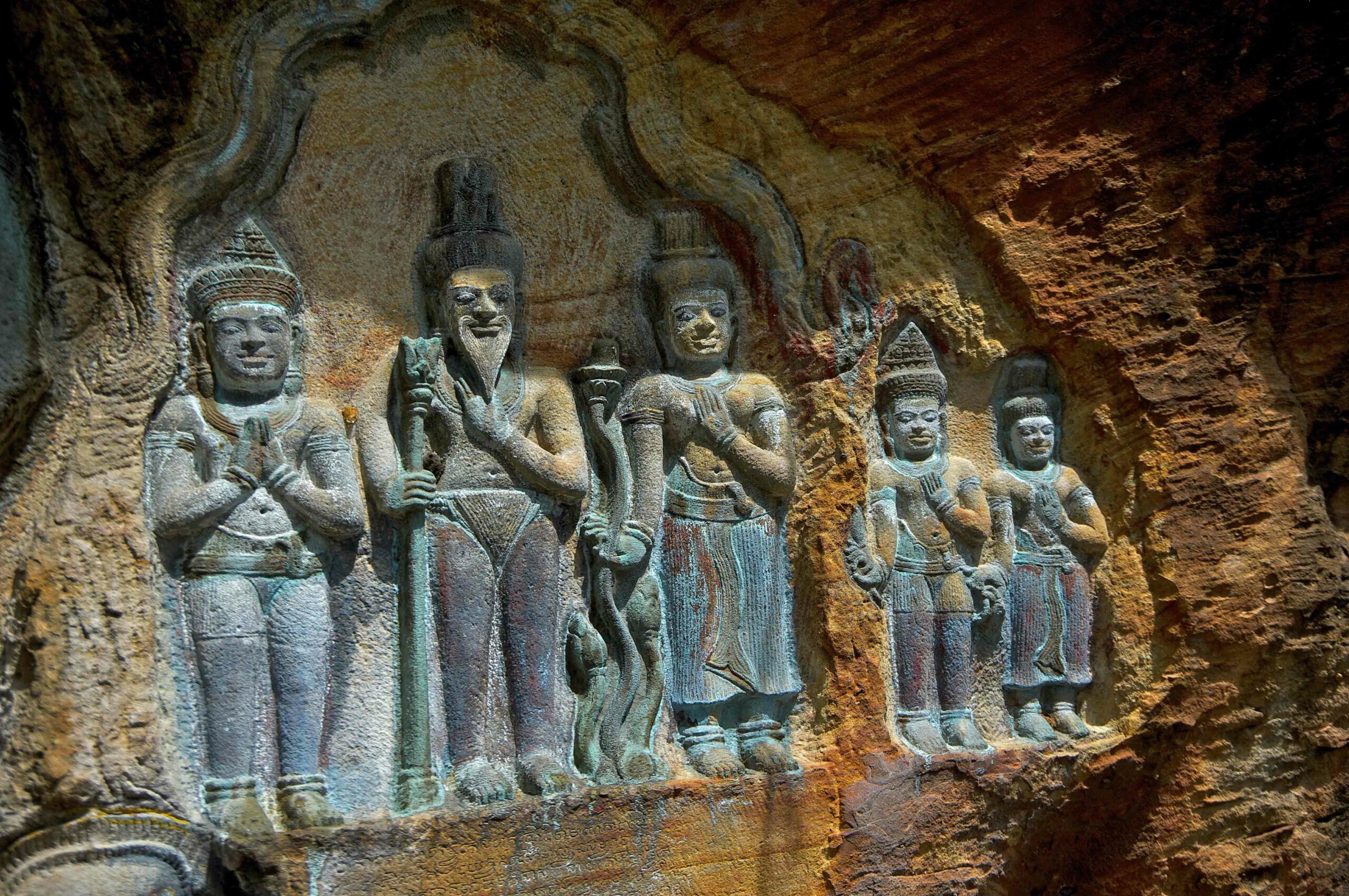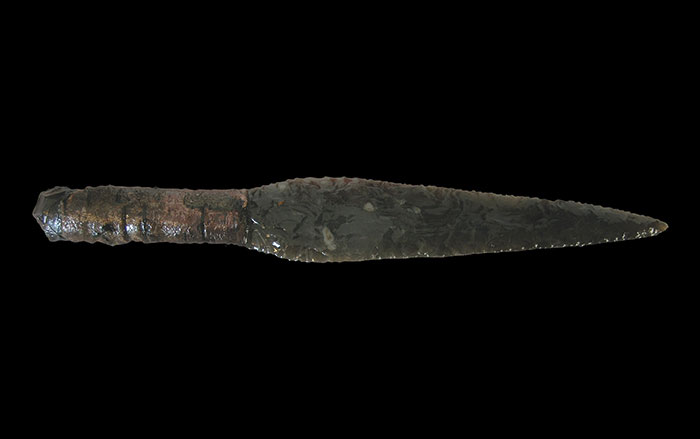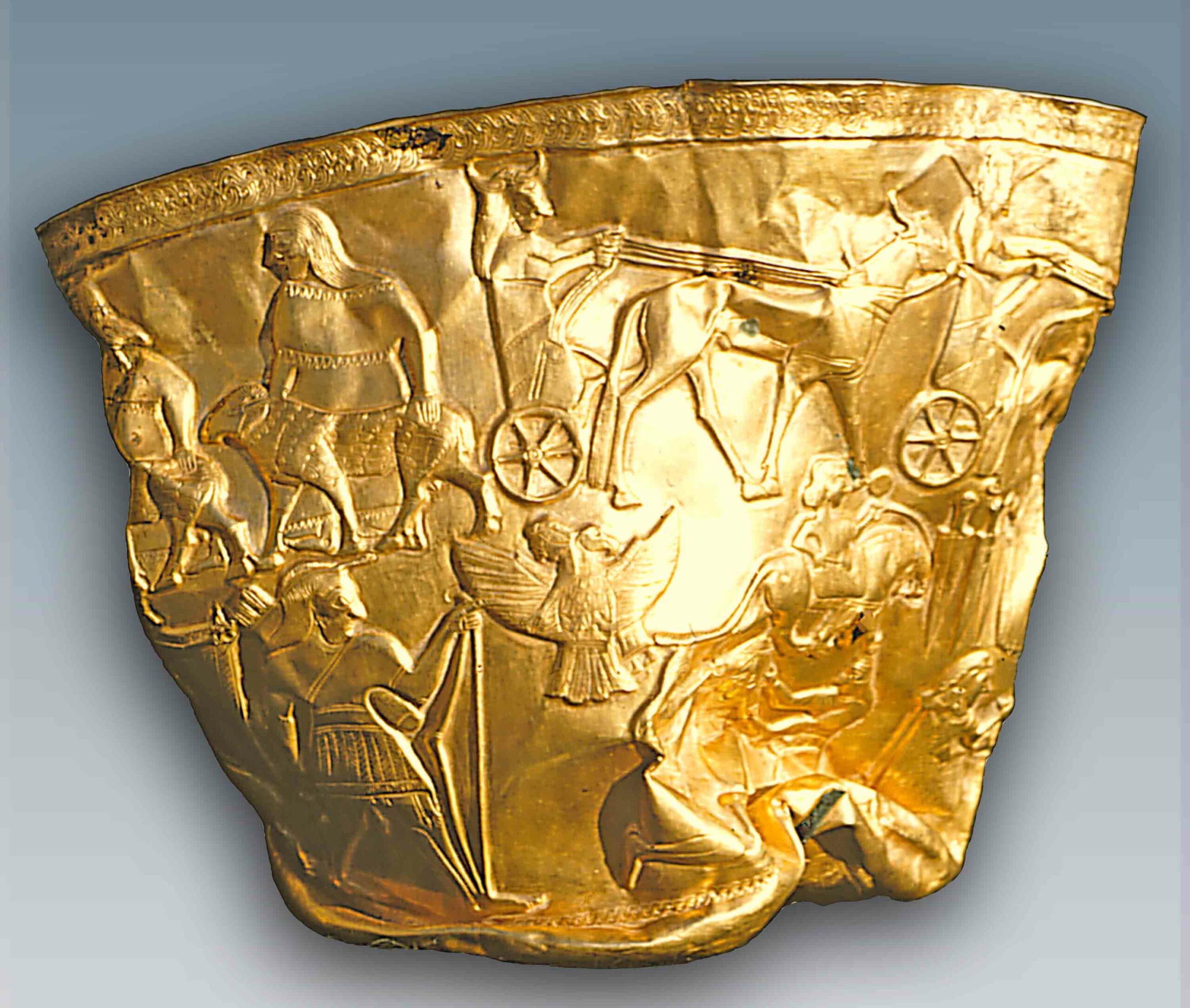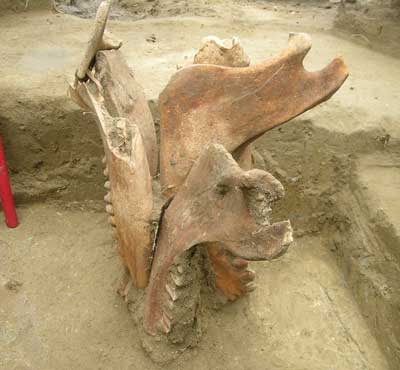
LETHBRIDGE, CANADA—Shawn Bubel of the University of Lethbridge started excavating the 2,500-year-old bison kill site in the Fincastle Grazing Reserve because it was being looted. She and her students have uncovered the fragmented remains of at least 65 bison, and eight arrangements of bison bones standing on end in precise patterns. “In all of the features, the bones were positioned in an upright way, and were pushed all the way into the ground so that they would not have been visible from the surface,” Bubel told Western Digs. Evidence at the kill site suggests that hunters ambushed the bison while they were drinking in the marshy land among the sand dunes. The team also unearthed 118 projectile points that may have been crafted by two different cultural groups. Some of the points are broad-faced and side notched, resembling Besant Phase points that are usually found to the east. Others are more elongated and resemble Sonota points from the Dakotas. “I have my thoughts on this—that the Fincastle hunters have strong ties to the Dakotas, likely even travelled from there. But this remains a hypothesis, for now,” she said. To read in-depth about bison kills, see "The Buffalo Chasers."


